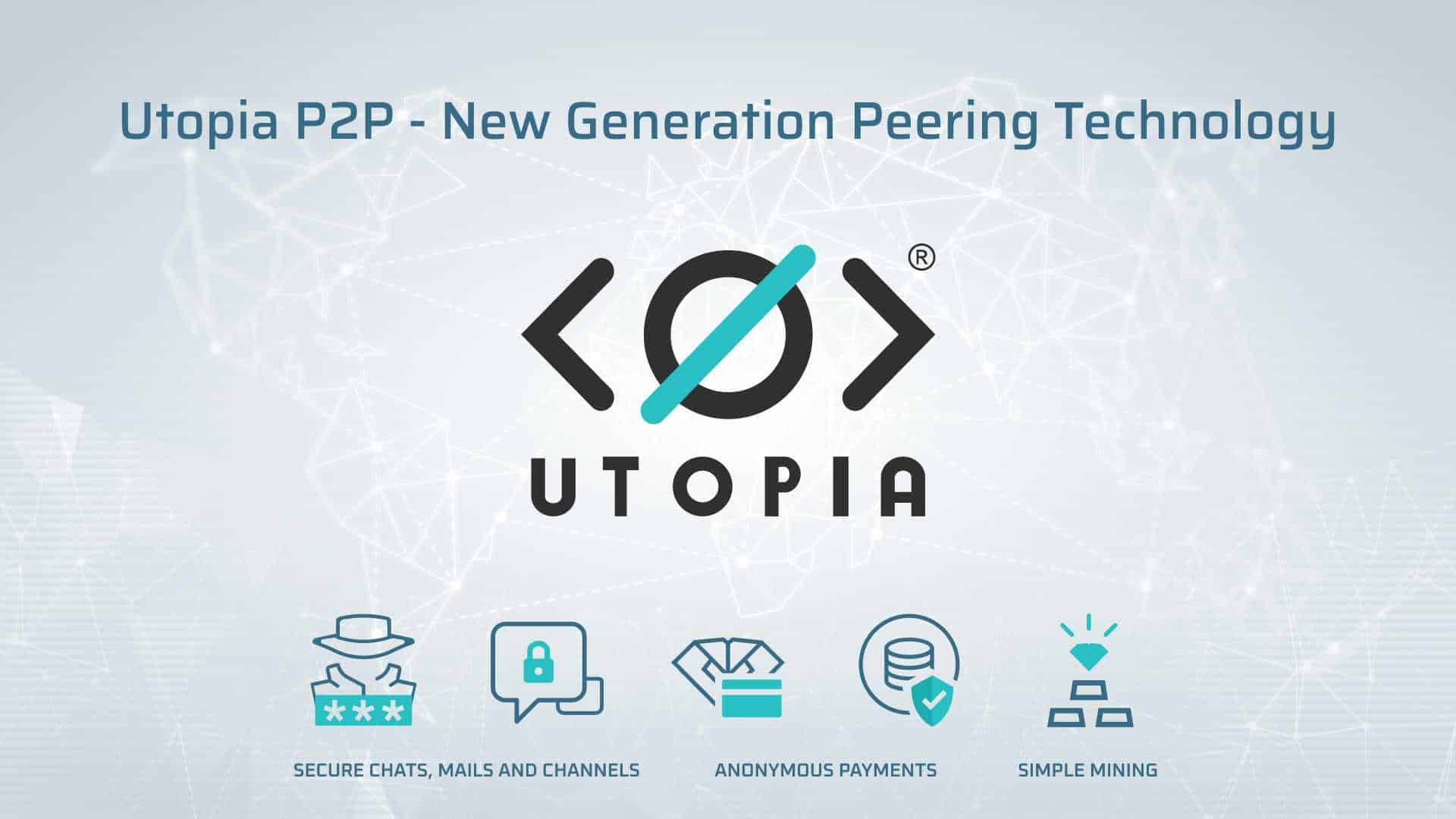One of these networks is the Utopia P2P ecosystem — an anonymous and decentralized platform for communication, messaging, file transfer, browsing, and online payments. This ecosystem is an ideal space for everyone who takes care of internet privacy and wants to use many functional tools in one place. The user needs only 30 minutes of time to evaluate all the advantages of the ecosystem and conclude: “Can Utopia replace all other p2p networks or not?” Utopia P2P is based on a serverless network technology that allows multiple devices to share resources and communicate directly with each other without an intermediary. It means that each computer that is a member of the peer-to-peer system acts as a server for the files stored on it.
Registration in the ecosystem is anonymous, users do not need to enter personal data, such as real names, addresses, phone numbers. The only thing needs to be done is to come up with a nickname and password, after which the ecosystem will generate a unique private key that will open access to the ecosystem. The developers noticed that Utopia P2P network opens up huge opportunities in information exchange, communication, and file transfer. The use of peer-to-peer technology means storing and transferring a huge number of files with the absence of censorship and surveillance, freedom of action, and speech. Moreover, the ecosystem eliminates the possibility of information leakage and state pressure on developers since the creative team is a group of anonymous enthusiasts who joined together and created — The 1984 Group. The idea of the name was taken from George Orwell’s novel — 1984. This novel served as an inspiration for the developers, who did not want to allow a repeat of the plot. Besides, developers were impressed with Edward Snowden’s revelations, who told the world the truth about the surveillance of people via the internet. Therefore, the creation of the Utopia ecosystem was only a matter of time. Today, Utopia is a ready-made and working project that brings together different people worldwide: from IT specialists and programmers to ordinary users who value online security and convenience. Ecosystem users are a cohesive community that promotes the ecosystem and its postulates: anonymity, privacy, security, lack of censorship, and multi-functionality. If the first points are clearer, then the ecosystem’s multi-functionality plays a key role. Utopia is a unique platform that combines tools for communication, transferring information and files, browsing, making online payments, and even playing games with friends. Moreover, all the tools start to work after downloading and registering in Utopia. Everything works in one place and at the same time. There is no need to download any additional applications or updates. About each new update, the ecosystem will remind the user. For chatting and file transferring, there is an instant uMessenger or an alternative to traditional email — uMail. For creating or viewing existing web pages, an Idyll browser does not track online activity and does not know the real IP address. To communicate with other users or quickly spread information, everyone can create uChannels on various topics, ranging from politics to sports (all moderators and participants remain anonymous. Therefore, there is no censorship and advertising.) Finally, for providing secure online payments, there is an internal uWallet that stores Cryptons (CRP) — the primary monetary unit of the ecosystem. In addition, Utopia has an API for developers who want to create their own website in the ecosystem or mirror an existing one. At the same time, all settings and publications will be accurately transferred to the ecosystem. But now both the creator and site visitors will remain anonymous. Besides, using the API, people can accept payments denominated in Crypton on their website, automatically manage created channels, send instant messages, and much more. The Utopia P2P ecosystem is often compared to the Tor. However, this project provides unique value. It takes all of Tor’s fragmented privacy technologies with its weaknesses and unifies them in a completely integrated and enhanced peer-to-peer ecosystem with a list of encrypted and protected multifunctional tools. Just a 30-minute ecosystem test will help to evaluate the ecosystem and decide whether to use Utopia as the main P2P tool or not. Soon, a mobile version of the ecosystem will be released. Now, it is available for use on Linux, Windows, MAC operating systems.
